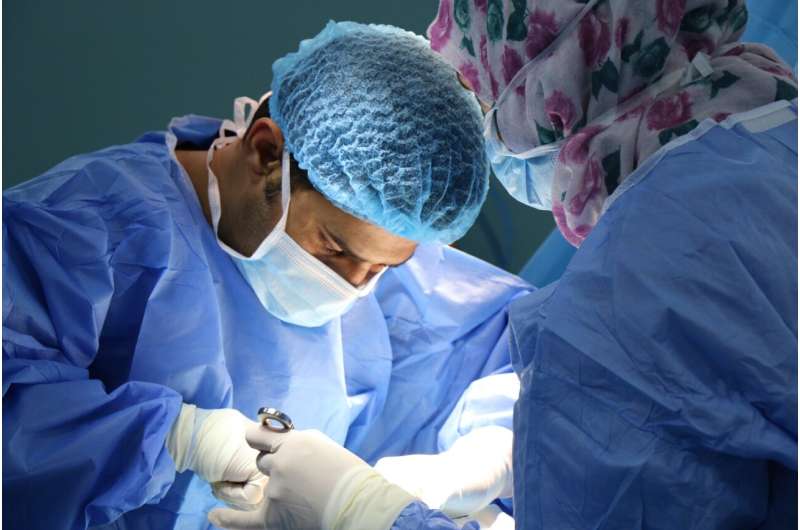

Researchers at The Florey are one step closer to finding new treatments to prevent brain injuries after using a heart-lung machine during heart surgery—a technique used to take over the workload of the heart and lungs, diverting blood and oxygen around the body.
In Australia, more than 20,000 heart surgeries require use of a heart-lung machine and up to half of heart surgery patients report delirium, short term memory loss, emotional disturbance, trouble concentrating or problem solving. And 1.2-1.6% of patients develop stroke following their surgeries. Up until now, the reason for this has been unclear.
The Florey’s research, published in Anesthesia & Analgesia, shows world-first evidence of heart-lung machines causing inflammation in the brain and—as a result—brain injuries in patients afterwards. It also shows why this is happening, paving the way for preventative treatments.
The lead researcher on this project, Associate Professor Yugeesh Lankadeva, says the findings will reduce the short-term risk of in-hospital death and improve the long-term quality of life for patients following heart surgery.
“When a patient has a heart transplant, a heart bypass or any procedures to repair or replace heart valves, the heart-lung machine is vital for cardiac surgeons to carry out these major operations. So, it’s important to understand how the brain was being impacted,” says Associate Professor Lankadeva.
“We found that neurological complications are likely occurring due to a profound inflammatory response caused by the blood passing through the heart-lung machine. As it passes through this synthetic tubing and enters the body, inflammatory mediators are released within the bloodstream. This is known as a ‘systemic inflammatory response’ which causes neuroinflammation in several key regions of the brain.”
Researchers saw that the systemic inflammatory response is fast and was likely to be causing neuroinflammation by disrupting the blood-brain barrier, the biological wall that protects the brain.
Importantly, this research also disproves a theory that a lack of oxygen in the brain during surgery is the cause of acute brain injury. Instead, the team found that neuroinflammatory injury occurs even in the absence of reduced oxygen levels—also known as hypoxia—in the brain.
“Thanks to our research we know why these neurological complications occur and when to administer treatment for the best chance of success,” Associate Professor Lankadeva added.
“The missing piece now is the treatment itself. That is our next step—to develop targeted therapies that prevent neuroinflammation from occurring, stopping injury to the brain before it happens.”
More information:
Khalid Elsaafien et al, Associations Between Systemic and Cerebral Inflammation in an Ovine Model of Cardiopulmonary Bypass, Anesthesia & Analgesia (2023). DOI: 10.1213/ANE.0000000000006379
Journal information:
Anesthesia & Analgesia
Source: Read Full Article